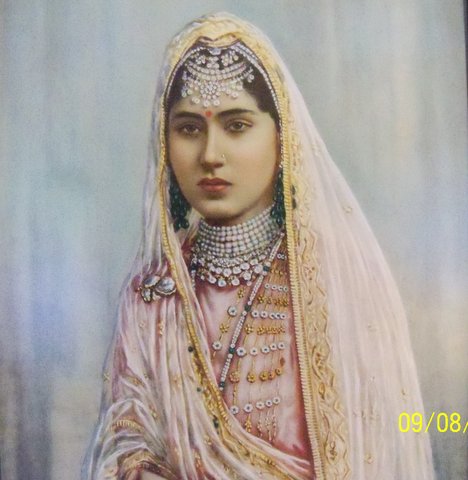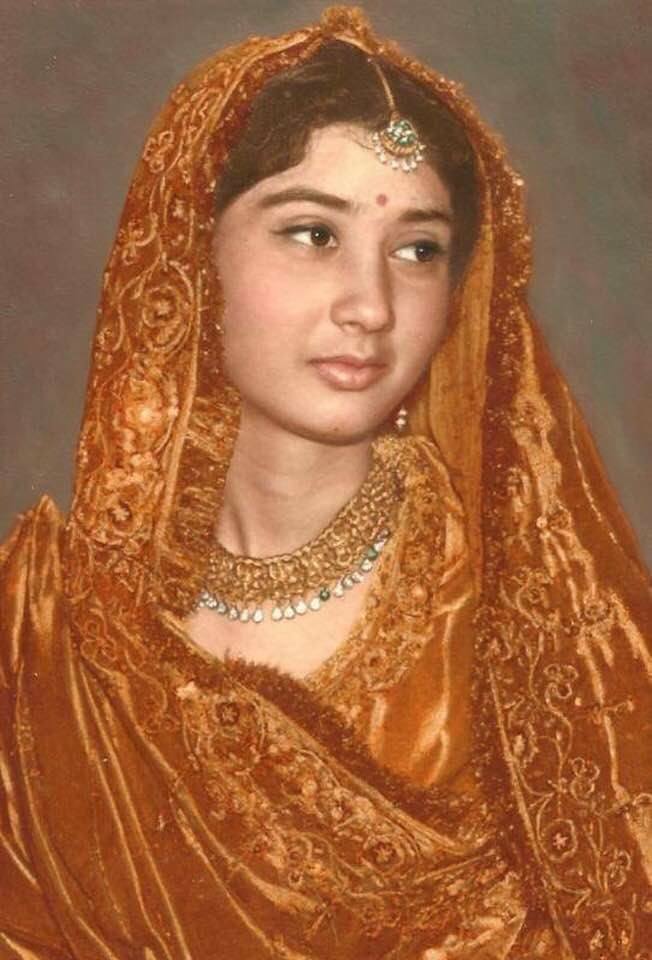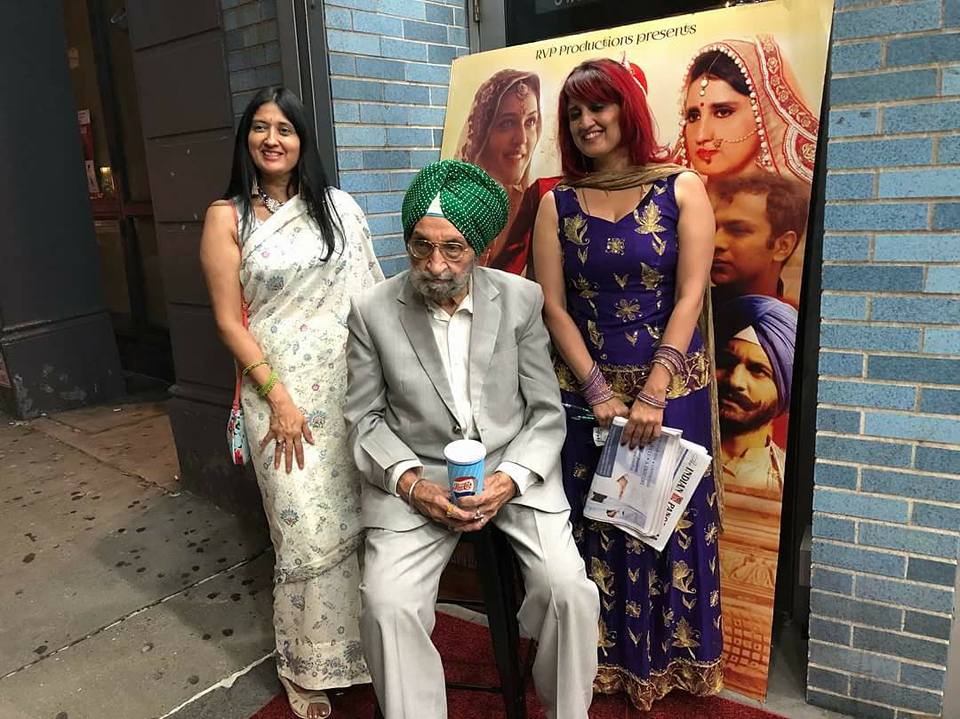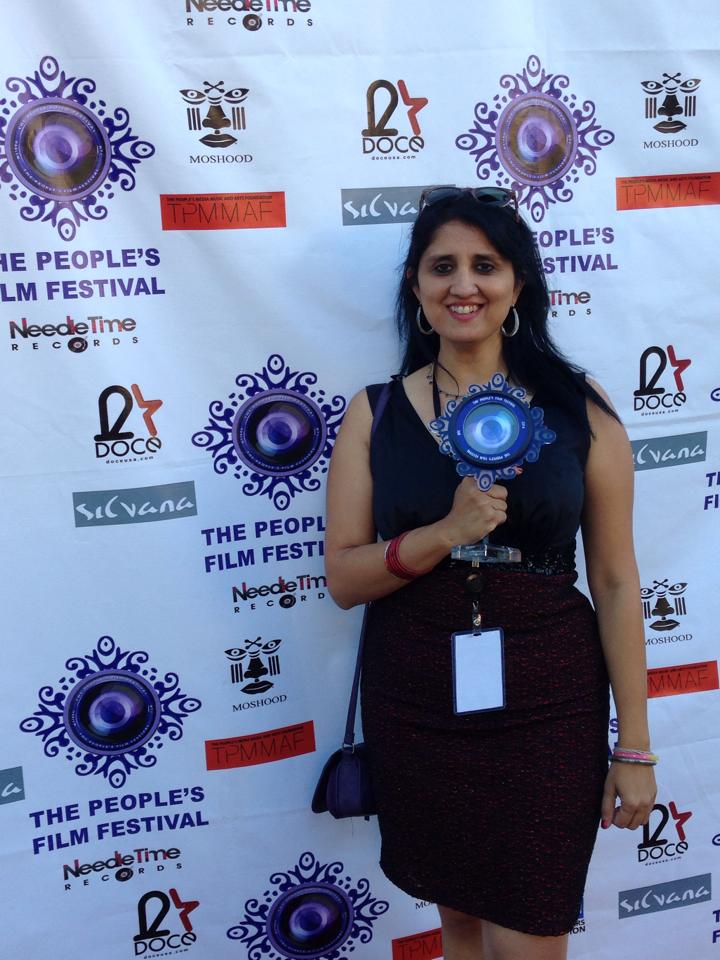6085 people reached on Lassi with Lavina FB page – 620 clicks and 43 Likes
Chandini Dayal, Aarti Desai Doshi and 13 others like it on Lassi with Lavina FB page
189 Views on LinkedIn
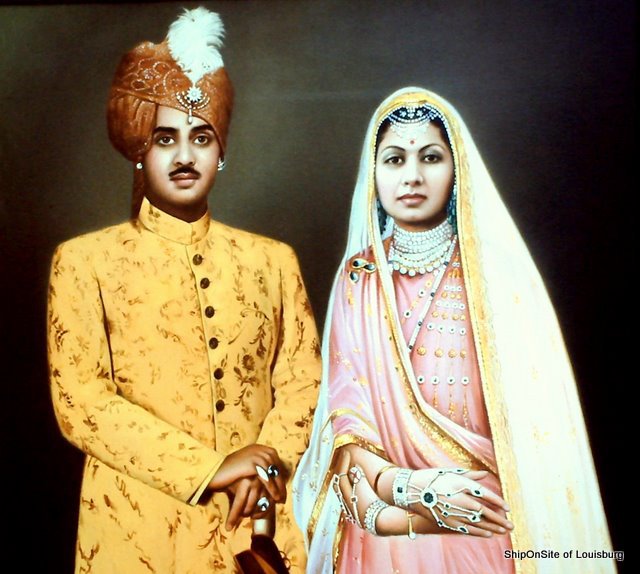
Yadvi: The Maharani Diaries from Three Grand-daughters
The Back Story of ‘Yadvi: The Dignified Princess’ ….
[dropcap]Y[/dropcap]ou could say the new film ‘Yadvi: The Dignified Princess’ is in reality the story of four women. The Princess Yadhuvansh Kumari, daughter of the all-powerful Maharaja Bhupinder Singh of Patiala, who was brought up with a silver spoon but had to face the heartache of a bad marriage and the vicissitudes of fortune as she made her way in life, always a class act.
The back story of ‘Yadvi’ is an intriguing one too – with India’s Independence, the maharajahs and royal kingdoms disappeared into the past – yet they and their new generations still had to make a life for themselves in the new India and the world outside. Princess Yadvi had a difficult life but she did have the love of her three Indian-American grand-daughters who lived with her in Dehra Dun before coming to America. They remembered all that she had taught them about life. Jyoti Singh, a New York actress and her sister Gauri, who wrote the script, along with Ketki, their oldest sister whose children acted in the film – each one from this new generation brought to life a story which would have been forgotten with the passing of time.
Jyoti Singh talks about the ups and downs of making ‘Yadvi’ – but also shares memories of her special grandmother who was the daughter of one of the most influential maharajahs but who nevertheless found the courage and eloquence to gracefully play the hand that was dealt her.
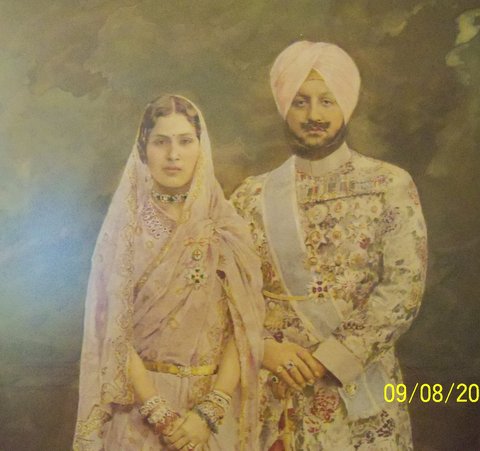
[dropcap]S[/dropcap]o what memories does Jyoti have of that remarkable yet largely forgotten princess? “My grandmother was unlike anyone I have ever met. She had charisma. Her dressing style and emphasis on manners which she also inculcated in us were a pure reflection of a bygone royal era, which included the likes of Nehru and Mountbatten. She was well educated, listened to the BBC and spoke to the children in English though she was also fluent in Hindi and Punjabi. She read to the grandchildren, favorites like ‘Amar Chitra Katha’.”
Jyoti remembers her emphasis on duties and punctuality: “She always taught us how to do things. We all had duties. My duty was often to make chai, and even though we had servants, she wanted us to learn, for as she said, you never know where life takes you. Some days in the evening we sat with her and discussed what was going on in the world, though as a child I was hardly interested. We did not have television and we spent hours talking to her. She told us stories about her father and mother meeting, falling in love.”
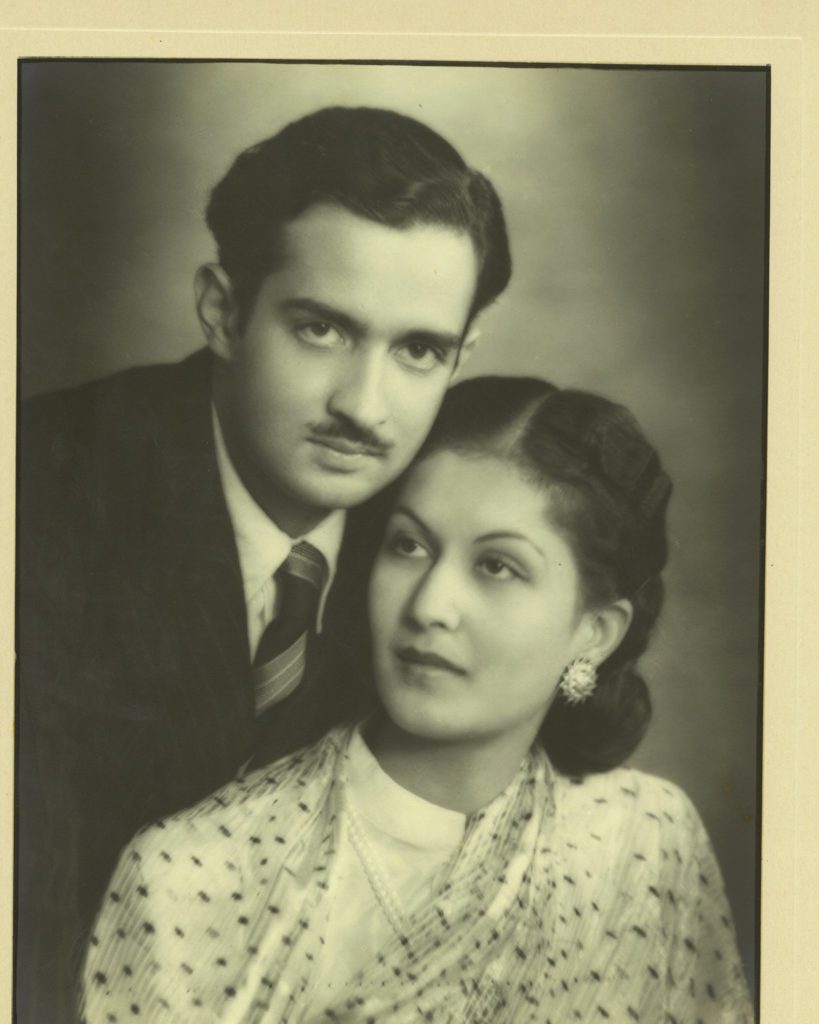
[dropcap]T[/dropcap]here were many happy moments: Jyoti recalls being taken to movies by her and also getting rewards from her every time they did gardening or some other work, a ten rupee note to go buy anything from Dwarka store which was about half a mile away. “She loved dressing us up and was pretty modern for the times in Dehra Dun. She would take us to get clothes made for our birthdays to a tailor and also encouraged us to wear shorts, skirts, and jeans, which in those times were considered modern. Her style of clothing in Indian attire was very different. She never stepped out of the house unless she was dressed with hair covered, long jacket.”
[dropcap]J[/dropcap]yoti learned a lot from her by osmosis, about integrity and independence. “Watching her as a child, now I know she had integrity. To me it was seeing her as self-complete, whole in herself, and manifesting strong moral principles. These attributes she inherited from her father who trained her to be self-reliant. She would spend hours gardening with us and taught us the basics of nurturing the plants in her small garden.
Another thing we saw throughout childhood was her altruism. She exemplified this in many ways including donations to orphanages, but the one I remember the most is ensuring a proper education for the children of our servants — the children who later developed strong careers, one of them going to England.”
[dropcap]I[/dropcap]n the long run, Jyoti and her siblings learned some valuable lessons from her and they have made them a part of their own characters: “I never heard her disrespect anyone; Instead of complaining about a situation she quietly and calmly sought a resolution. We only got to know upon growing up that she was surrounded by some bad family politics; but since she never griped or cried about these things, we didn’t even know about this until we were adults. This to me reflects dignity.”
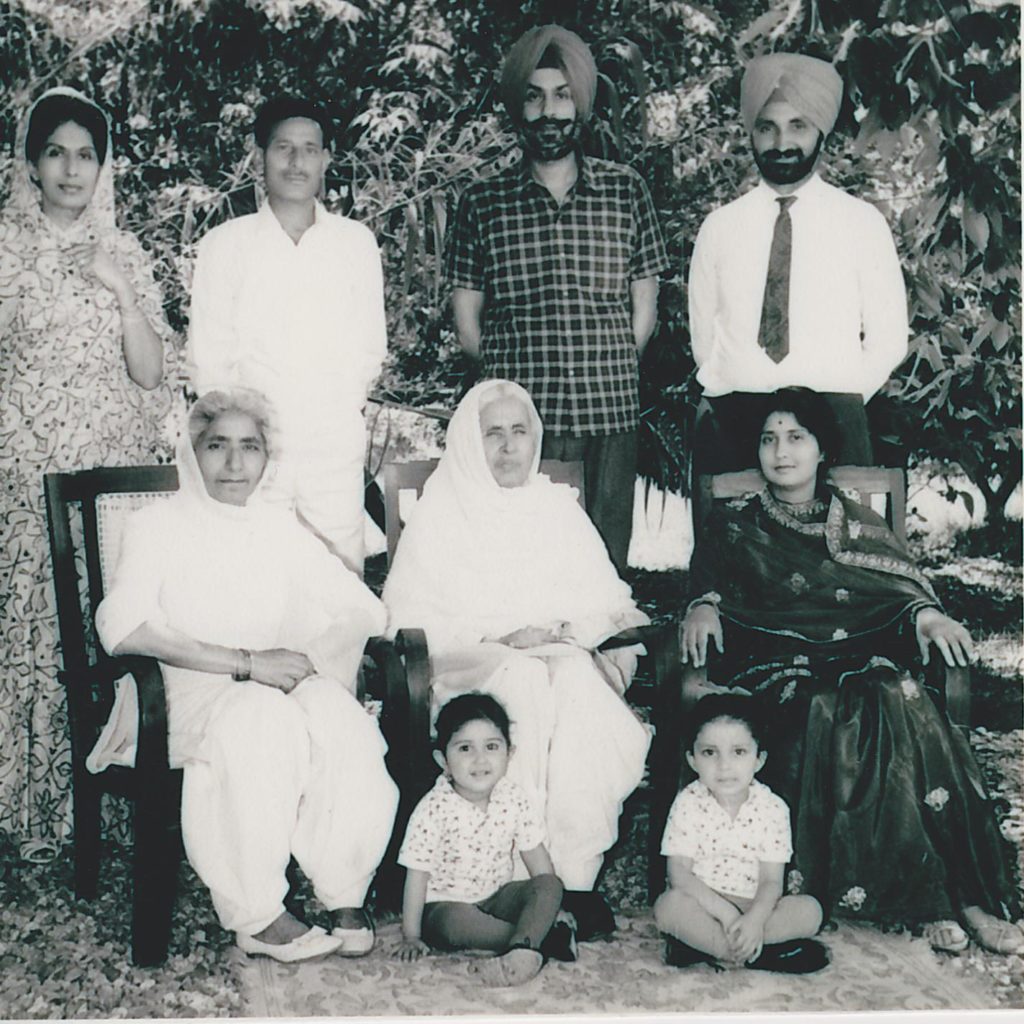
[dropcap]S[/dropcap]o when you are in close contact with such a special person, you do want to hold on to the memories. For Jyoti Singh the solution was making a film about her which could be shared with the larger world. Her sister, Gauri Singh wrote the story and then spent several years writing the screenplay. Jyoti, being an actor, and close to her grandmother, decided to take on her persona in the film and bring her untold story to life.
“A lot of people want to tell stories that need to be told, but I believe this story is important because she was the daughter of one of the wealthiest royals in India at that time,” says Jyoti. “A maharajah who had a colorful, lavish lifestyle and Yadvi, as Yadhuvansh Kumari was called, was one of the numerous children sired by him and her mother was the king’s third wife, and his favorite wife, Maharani Bimal Kaur.”
[dropcap]I[/dropcap]t chronicles Yadvi’s journey from facing a shocking obstacle right upon marriage and demonstrates the strength she held onto throughout the course of falling in love (after marriage) and navigating through the difficulty of accommodating the other wives of her husband as well as raising three refined daughters almost single-handedly. Says Jyoti, “This was also during the time when monarchy was coming to an end in India. Set during a time when women hardly had any rights, ‘Yadvi’ leaves the audience with inspiration and courage to overcome any adversity, even today.”
At one of the film festivals, an audience member told her she was surprised to see this darker aspect of the lives of royal families – that they struggle in the same way as ordinary people in spite of a privileged lifestyle. Another woman told her she identified with Yadvi completely: “Being brought up in New York, she felt the challenges women faced then and now are sort of similar. She felt this film is relatable to anyone and it is a story for everyone.”
Making a film is a marathon task for it not only needs creative talent but also business acumen and the chutzpah to be able to raise funds. So how difficult was it for Jyoti Singh to get cast and crew together and make ‘Yadvi’ a reality?
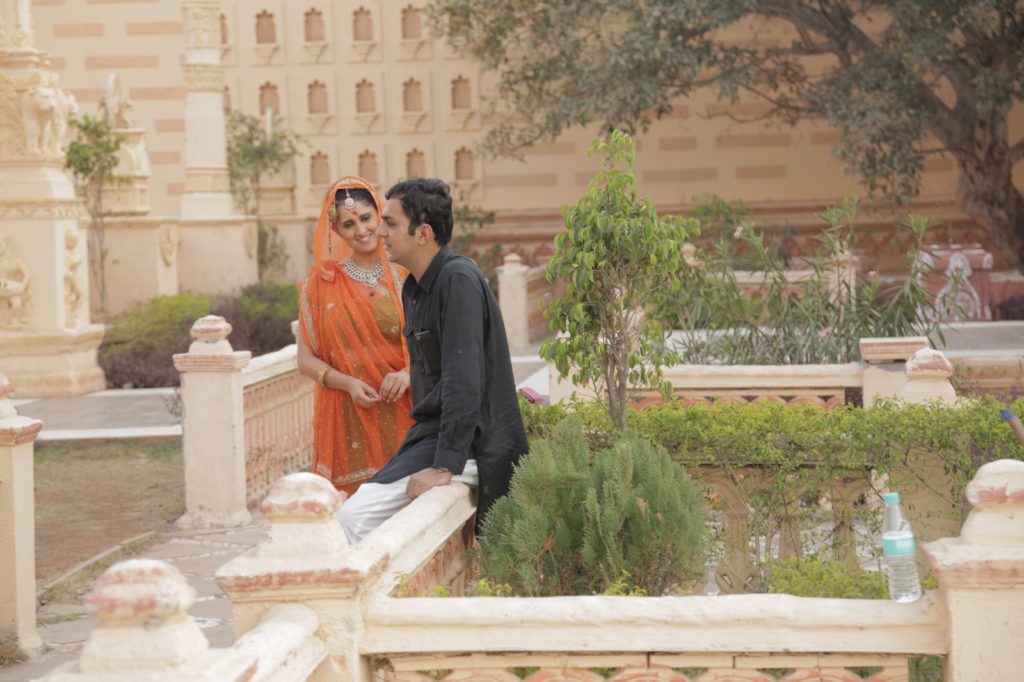
[dropcap]J[/dropcap]yoti is the first to admit that she never planned this journey. Earlier she had made short films and submitted to various film festivals but this was a whole different experience: “With ‘Yadvi’, I had no idea what I was stepping into and how much financially and emotionally and physically it would take. It has been a four year journey with people helping out along the way, but only 4 to 5 people who really worked hard from the beginning till now.”
‘Yadvi’ was a life-changing experience because she had never worked in India before. Having lived most of her adult years in the US, she was more familiar with life there and didn’t really understand how things work in India. “ There is a hierarchy system which I learned pretty fast. So knowing I have little control as a woman and knowing how people were ripping me off, I faced obstacles every day. Also, it is not easy for traditional Indian men to take orders from a woman, often younger than themselves!”
In India it’s often a very different work attitude and Jyoti found it a challenge to be working with different teams who were simultaneously shooting other TV shows on the same sets…to arrange the schedule, she had to work around their schedule. Then there were additional jobs – getting actors, arranging their travel, managing accounting, directing and acting. Recalls Jyoti, “Boy, my plate was more than full! I remember I hardly had any sleep. I am glad I had my cinematographer, Jigme Tenzing, and my sister, Gauri Singh, and Vibhu Raghav who helped me immensely on this journey.”
‘Yadvi’ was first shown at the Debra Dun International Film Festival on Yadhuvansh Kumari’s birthday. It was also shown at several film festivals including Rishikesh Art and Film Festival, New York City International Film Festival, Manhattan Film festival, 7th Dada Saheb Phalke Film festival, and The People’s Film festival (Harlem). The film has won 23 awards at various festivals including Best Emerging Film Director at the Dada Saheb Phalke Film Festival and Best Cinematography at the People’s Film Festival. It has been released in a few markets in India, New York and LA and on June 9 there is a screening at NJIIF in New Jersey.
‘Yadvi’ is a first venture, a small heartfelt film with good intentions that could have gone further with a bigger budget, a more seasoned team and a more in-depth script. The triumph was in surmounting the difficulties and making the film. Jyoti is now looking into other markets and digital platforms.
[dropcap]J[/dropcap]yoti, Gauri and the team made this film without a solid blueprint and as Jyoti recalls, “We had all the odds against us. Because when I decided to shoot, we did not have intensive shots planned or any written schedule every day, where we were, and yet we still managed to finish our India shooting in less than a month, with four full days off – which accounts for 90% of the film!”
Many of the lessons of surviving through tough things came from their grandmother, Princess Yadhuvansh Kumari. Says Jyoti, “ I learned that if you stay humble, don’t break under pressure, if you are honest and respect each person that works for you, they will stand by you. So I learned if you are persistent, you can make it.” She thinks the film can be an inspiring for women of all ages: “’Yadvi’ focuses on the journey of a woman who handled her life with integrity, principles, strength, and dignity. It is a family drama plus it is a historical fact and almost anyone can take something from this film.”
Thanks to her grand-daughters who created ‘Yadvi’ with sheer will power, a minuscule budget and a lot of love, the story of Maharani Yadhuvansh Kumari is there for all to share….

